Schedule & Calendar
J-Term 2024 – January 8-11
Issues in Contemporary Evangelical Theology
An apology against current reinterpretations of core Christian tenets.
HTheo 703/723 (3 Credit Hours)
Many attempts are being made to reinterpret Christianity for the current age. In this course, Dr. Wellum will present an argument against these reinterpretations. The course seeks to equip students with an apology for the evangelical position, as well as an understanding of what the Bible actually teaches.
Topics include: current theological debates, the intellectual roots of these debates, the doctrine of Scripture, hermeneutical issues, Genesis debates, the inerrancy of Scripture, the doctrine of God, the person of Christ, and the work of Christ.
Winter 2024 – Starts January 15
Old Testament Biblical Theology A
BibTh 203/223 (3 Credit Hours)
This course is designed to be an introduction to the Old Testament Scriptures, the first three-quarters of the Christian Bible. The emphasis will be placed upon understanding the text in its historical, cultural, and canonical contexts and its underlying theology. Matters such as setting, date, authorship, structure, and content, as well as interpretive problems, will also be considered. But the emphasis will be on trying to discern the theological structure of the Old Testament. One of the major Jewish sequences of books will be followed, since this was probably the order of the oldest arrangement of the books, and formed the Bible of Jesus and the earliest church. This sequence begins with Genesis and ends with Chronicles. My intent for this course is to help you get an overview of a very different place and culture and time, and to help you use this context to understand the Old Testament Scriptures! So welcome to the journey, a journey like no other. It begins with God’s command to create light in Genesis 1 and it ends with his command to rebuild the temple in 2 Chronicles 36, and so to fill the world with the light of His Presence.
Church History A
CHist 103/123 (3 Credit Hours)
Systematic Theology II
SysTh 203/223 (3 Credit Hours)
Systematic theology attempts to bring together the teaching of the Bible as a whole on any given topic. It asks questions about what the Bible teaches concerning God, man, Christ, sin, salvation, the Holy Spirit, the church and last things, and many more besides. In this course we will focus on 3 key areas: (1) The Doctrine of the Word of God, (2) The Doctrine of God, and (3) The Doctrine of Man. These are vast topics that we cannot begin to cover exhaustively. But we will endeavour to make the student aware of the richness biblical teaching when it comes to God’s Word, God Himself, and those made in his image.
Heresies of the Church
HistTh 503/523 (3 Credit Hours)
In this course we will begin with the New Testament and examine some of the first heresies to confront the Church in the first century, and
then move through several centuries of the Church’s history and examine other heresies that developed. We will also examine the development of creedal formulas and statements of the faith which the Church published in response to these heresies. Understanding the heresies of the Church is vital to appreciate and understand Christian orthodoxy and the maintenance of sound doctrine which is the earmark of true Christianity.
The ultimate goal and aim of this course is to better acquaint students with the orthodox teachings of the Christian Church and equip them to discern the source of various heresies and examine what particular aspect of Christian beliefs they sought to undermine.
Principles & Methods of Teaching
Teach 103/123 (3 Credit Hours)
In this course, we will examine the qualification and function of a teacher, the nature and needs of the student, the teaching-learning process, and the
preparation and presentation of a lesson. Students are required to be involved in a teaching-learning ministry in a local church during this course.
The Worshiping Church
Worsh 103/123 (3 Credit Hours)
This course is a study of the Biblical foundations, history and practice of planning and leading services of corporate worship in the gathered church. It is an intensely practical course, designed to sharpen students’ understanding of elements and structures of Christian worship, primarily reflecting the practices of Free (non–liturgical) churches. Students will grow in their understanding of the relationship of scripture to corporate worship, and of the importance of worship in the life of the believer and the local church. Practical experience will be gained in planning and leading worship.
The Book of Romans
Rom 303/323 (3 Credit Hours)
The goal of this course is to make the students familiar with the main arguments of Paul’s magnificent letter to the Romans. Because this is only a 12–week course, we will not be able to look at this New Testament masterpiece in detail. Our plan of action, therefore, will be to divide the letter into 4 big parts, and to
survey the material found in each section over 12 weeks of classes giving 3 weeks (approximately) to each major section. The sections are as follows: Weeks 1–3 – Chapters 1–3; Weeks 4–6 – Chapters 4–8; Weeks 7–9 – Chapters 9–11; and Weeks 10–12 – Chapters 12–16.
New Testament Biblical Theology II
BibTh 403/423 (3 Credit Hours)
This course seeks to canvass the major events and motifs of the New Testament revelation, including such topics as the theology of Paul, Hebrews, General Epistles, and Revelation. The introduction will survey the nature of biblical theology, and the different ways NT Biblical Theology is understood in contemporary
theological studies. A combination of lectures, personal work, and readings is intended to guide you in understanding the NT content and theology. Class lectures focus on theological issues.
Please note this is not a New Testament survey class. Students are expected to be familiar with the biblical text, as well as with issues pertaining to authorship, background issues, critical issues, and the like.
Introduction to Missions
Miss 103/123 (3 Credit Hours)
This is a wide–ranging look at the subject of Christian missions. This course establishes a biblical basis for the missionary movement. It then engages critically with various trends, issues and approaches to the church’s missionary mandate to enable the class to evaluate the “how to” and mission praxis. This awareness is designed to give the students the background needed to evaluate different kinds of approaches and strategies which have been used by missionaries and church planters during the modern era.
Homiletics A
Hom 103/123 (3 Credit Hours)
Hebrew Grammar II
Heb 223 (3 Credit Hours)
An elementary introduction to the Hebrew language leading to proficiency in reading and translating the Hebrew Scriptures (Genesis).
Hebrew Syntax and Reading II
Heb 423 (3 Credit Hours)
A course in rapid reading in different genres of Hebrew literature with full morphological review and further study of syntax. This course also includes an approach to the method of exegesis with special attention given to Hebrew poetry.
Greek Grammar II
Grk 223 (3 Credit Hours)
An introductory study of New Testament Greek grammar, forms, and syntax. Readings are taken from the Greek New Testament.
Greek Syntax and Reading II
Grk 423 (3 Credit Hours)
Exegesis from the Greek text is the proper foundation for the proclamation of the New Testament message. Students who have completed preliminary studies in morphology and grammar will continue to sharpen and enlarge their exegetical skills in this course. Attention is given to applying the rules of grammar and syntax while recognizing the nuance of idioms and historical context as students examine a series of New Testament texts.


